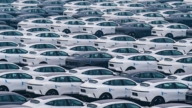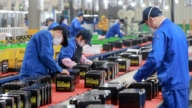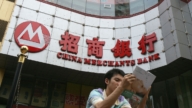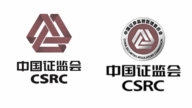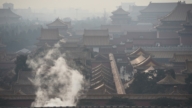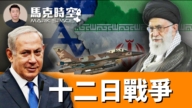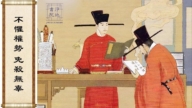【新唐人2013年05月11日讯】日前,大陆官方媒体撰文,声称国资委研究专家指出,任何一家“央企”都不是垄断企业,中国的“国企”做大,有利于国际竞争,国营企业关系到国家的战略利益和安全,硬性要求国有企业全面退出竞争性领域,会影响中国的产业发展和经济安全。那么中国的国营企业是否真的存在垄断?正常社会里存在大量国营企业吗?他们的国营企业是为了保障民众的利益,还是在和民间企业争利呢?世界上战略强国和经济强国是靠国营企业做起来的吗?我们一起来看看专家怎么说的。
国资委研究中心研究部部长许保利对记者表示,国有企业垄断的说法并不符合实际。即使在一些普遍被认为垄断程度较高的行业中,不同企业之间的竞争,包括竞争激烈的国际市场,并没有哪一家企业能够在市场上真正占有垄断优势。
大陆企业观察员何军樵:“他是说给自己听的,至于别人听不听﹖他不在乎。现在国营企业成了国中之国,实际上他们是不是企业家?不是吗!他们是有一定级别的官员对不对?至于中国的垄断企业为什么能够成为世界五百强?那就是垄断的原因在里面。每年的补贴不计其数,绝大一部分贷款都带给了国企。税收,没有。”
许保利还说,国家对石油这类高度稀缺性,或涉及国家安全的战略性部门,采取垄断性经营是必要的。这个垄断地位是国家给予的,并不是企业自己定的。
美国南卡罗莱纳大学艾肯商学院教授谢田:“实际上,政府的作用应该是打破垄断,然后维持私人企业之间的竞争,以不侵害消费者的利益,而不是去扶持企业。人们都说美国国家实力强,美国经济实力强。但实际上,美国经济很强的大企业其实都是私有的,或者通过股份所有制全民共有的,都不是政府拥有的。”
世界前50强的石油公司中,美国有9家,他们都是股份公司,任何人都可以去购买股票。当年,美国老字号的老资本家标准石油公司,因为太发达、太垄断,美国政府强行把他分解掉,美国电话电报公司,原来的“贝尔公司”也是如此。
谢田指出,中国的铁路、电信、邮政、水电、航空等民生行业,就是因为政府垄断,导致中国老百姓在这些服务上的付出,费用高于世界上其他国家多得多。
谢田:“我们知道正常国家很少有国有企业,就是有,他有垄断地位的时候,利益是受到限制的,几乎没有利润。比方说印度的铁路,它也是垄断,他几乎是没有利润,他就是有利润也是用低票降薪,返回给老百姓。”
许保利还强调,打破行政垄断,必须要确保国家安全和产业安全。在涉及国家安全和国民经济命脉的行业,国企的重要性无可替代。
谢田:“中共的官员认为,只有政府拥有的才是国家的实力。不把民运企业、私人企业当人看。实际上中共不光夺取了政权,经济权、军事权斗不都牢牢抓在手中。这就是中国老百姓为什么没有自由,没有政治自由、没有经济自由,就是这个原因。”
谢田还指出,美国的军工生产实际上也是私人企业在运作,美国国防部让这些私人企业去竞争,看谁制造出来的战斗机好,谁能满足国防部的要求,然后他才采购。
文章中还说,中国对电信产业实行了改革重组,并且已然由一家独大的状况变为了3家。
不过谢田指出,实际上这三家都是国营企业,好像是在竞争,实际上是假竞争,因为三家企业的老板都是国资委、都是中共既得利益集团。谢田还指出,任何国家的国营企业都是效率最低的。
采访编辑/刘惠 后制/李勇
Is monopoly of state-owned companies real in China?
Recently, China’s official media quoted experts of State-owned
Assets Supervision and Administration Commission (SASAC).
They said central state-owned Corporations are not monopolies.
The expert claimed that, developing state-owned
Corporations s good for international competition;
They are also important to China’s strategic benefit
and national security;
Forcing them to retreat from competitive fields will
negatively affect China’s industry and economy.
Is there monopoly by China’s state-owned companies?
Are there many state-owned companies
in non-socialist countries?
If there are, do they protect civil interests or
compete with private companies?
Is there any great power that relies on state-owned
companies to develop its country?
Several experts will provide their answers to these questions.
Xu Baoli, a department head at SASAC denied China’s state-
owned companies are monopolies when interviewed.
Xu said, even if it looks like it, almost no company can really
corner the market due to intense competition especially globally.
He Junqiao, Chinese market observer: ”He (the expert) is
talking to himself and doesn’t care about others’ opinions.
Now state-owned companies have become states
within our state.
Are their leaders real entrepreneurs? No, they are not.
They are all party officials of some certain levels, right?
Then how can they become top 500 enterprises?
The answer is monopoly.
They are given numerous subsidies and receive most of
the loans. On the other hand, they almost pay no tax at all.”
In his interview, Xu Baoli also said it is necessary for the
government to monopolize resources.
The ones that are highly scarce or relate to
national security, as well as the oil dept.
The monopoly is therefore a governmental decision,
not by the state-owned company itself.
Xie Tian, Professor at University of South Carolina:
”The role of government should be restraining monopoly.
By encouraging competitions between private enterprises,
it will protect the consumers.
It should not support any one company. Everyone says that
the United States has a very strong economic power.
However, American giant companies are either private ones
or owned by all the people through stock ownership.
They are not owned by the government.”
Among the top 50 oil companies in the world,
nine belong to the United States.
They are all stock corporations and anyone can
purchase their stocks.
In the past, the famous Standard Oil was dissolved by
the US government because it was too powerful and
the degree of monopoly was too high.
The former “Bell system” was also forcefully
broken up for the same reason.
Xie Tian remarked that, China’s railroad, telecom,
post service, water and power supply, aviation and
other industries most relevant to people’s livelihood
are all monopolized by the government.
Therefore the Chinese have to pay much more than
in most countries for those services.
Xie Tian: ”We know that in normal (non-socialist) countries
there are very few state-owned companies.
If there are, they are restricted to make almost zero profit
if monopoly exists.
For example, India’s railroad which is run by
the government has no profit.
If there is, the money will be returned to the Indians
by reducing the ticket prices.”
Xu Baoli also stressed that breakup of monopoly
has to yield to national and industrial security;
In fields that relate to national security or economic lifeline,
the importance of state-owned companies is irreplaceable.
Xie Tian: ”The Chinese Communist Party (CCP) officials believe
that national power only counts what the government owns.
They never treat private enterprises with fairness in the least.
In fact, the party not only holds the political power,
they also have the economic and military power.
This is why Chinese people have no freedom
politically or economically.”
Xie Tian remarked that, in US even war production
is run by private enterprises.
The Ministry of Defense encourages private companies
to compete with each other.
It will purchase from those who have the best product quality
that satisfies all its requirements.
The CCP sanctioned report also mentioned
the restructuring of China’s telecom industry;
Saying that now there are three service providers
compared to only one previously.
Xie Tian argued against the report that, in fact all three
telecom companies are state-owned ones;
The “competition” between them are not real
because they are all subject to SASAC, and are all part of the CCP’s interest groups.
Xie Tian further added that, in any country state-owned
companies always have the lowest working efficiency.


